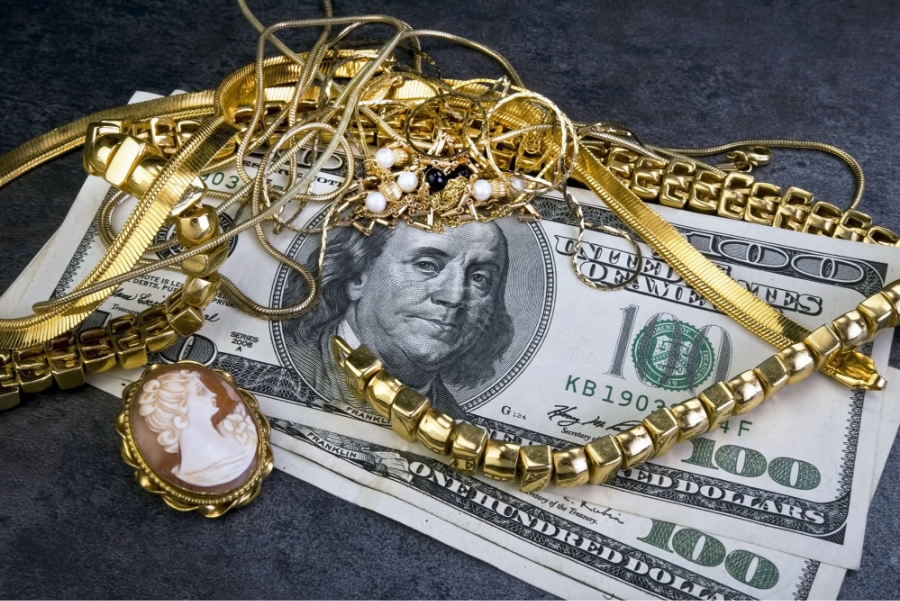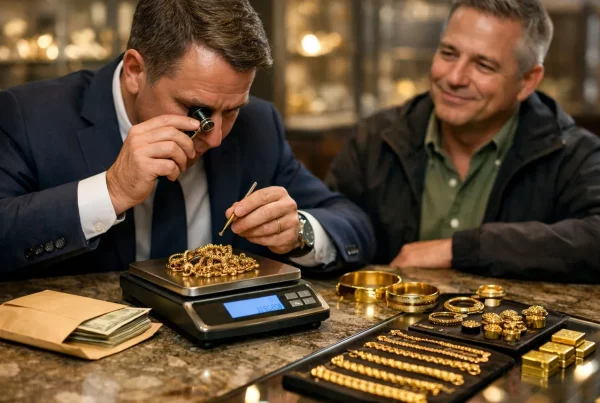Introduction
Pawning goods can be a quick and efficient way to get the money you need, but getting the best price for your goods calls for some expertise. We’ll examine the best advice and tactics in this thorough guide to make sure you get the most out of your pawning experience. We can help you with everything from comprehending the pawnshop procedure to effectively presenting your items.

1. Know Your Pawnshop
Pawn shops differ greatly from one another. Choose a trustworthy pawnshop that specializes in the kind of items you want to pawn after doing some research. Observe the following:
- A Trusted Reputation
Examine online reviews and seek advice from friends or family. An honest pawn shop will have a track record of doing business fairly. - Specialization
While some pawnshops concentrate on electronics or collectibles, others specialize in jewelry. Pick a pawn shop that is compatible with the goods you are pawning. - Friendly Staff
Your experience with pawning can be streamlined by courteous and knowledgeable staff. They can guide you, answer your questions, and explain the procedure.
2. Understand the Appraisal Process
It’s important to understand how pawnshops determine the worth of your belongings. Typically, these elements are present:
- Item Condition
Good-condition items typically receive higher bids. If necessary, tidy up, fix, or upgrade your possessions. - Market Demand
The level of demand determines an item’s value. Popular products and brands frequently receive better offers. - Original Documentation
Provide any receipts, authenticity certificates, or original packaging you may have. They may increase the value of your item.
3. Timing Matters
The offer you get can vary depending on when you pawn your item:
- Avoid Peak Seasons
Avoid pawning during busy times of the year when pawnshops may be busy with customers. Lower offers could result from this. - End of the Month
A few pawn shops set monthly sales goals. Putting your items up for pawning near the end of the month might get you a better deal.
4. Present Your Items Well
Initial impressions matter. The offer you receive may depend on how you present your goods:
- Shiny and clean
Make sure everything is clean. Consider having your jewelry cleaned and polished by a professional. - Group Similar Items
Sort your items by type if you have several. The pawnbroker may find it simpler to evaluate and value them as a result. - Include Accessories
Include any extra parts or accessories if your product has them. This could raise the value overall.
5. Be Realistic About Value
Realistic expectations about your item’s value are crucial:
- Conduct Your Research
Make sure you know the fair market value of your items before going to the pawnshop. Websites, auction results, and appraisal manuals may be of assistance. - Set a Minimum Acceptable Offer
Be aware of the lowest sum you will accept. Tell the pawnbroker this during negotiations.
6. Deal a Deal Wisely
A common step in the pawning process is negotiation. Here are some tips for bargaining:
- Be Polite and Respectful
Bring a positive outlook to the negotiating table. Being courteous can occasionally result in better offers. - Don’t Rush
When negotiating, be patient. Rushing can result in rash choices that you might come to regret. - Know When to Walk Away
Don’t be afraid to reject the offer if you’re not happy with it. You can look into other options or try a different pawn shop.
7. Understand the Terms
Make sure you comprehend the terms before concluding the pawn transaction.
- Interest Rates and Fees
Understand the terms of repayment, fees, and interest rates. Recognize the repercussions of not making the loan payments. - Loan vs. Sale
Make it clear if you’re selling your item outright or pawning it for a loan. This has an impact on your ability to get the item back.
8. Keep Your Ticket Safe
You will get a pawn ticket when you pawn an item. It serves as your proof of ownership, so store it safely. Losing the ticket can make reclaiming your item more difficult.
9. Repay Promptly
If you’ve pawned your item for a loan and plan to retrieve it, make payments on time. Failing to do so can result in losing your item through forfeiture.
10. Consider Alternatives
Pawning is merely one choice. Look into alternatives like online item sales, borrowing from friends and family, and personal loan applications.
Conclusion
In conclusion, when done properly, pawning items can offer immediate financial relief. You can make sure that you get the most money for your items and have a positive pawning experience by adhering to these top tips. Keep in mind that research and communication are essential and that the choice of pawnshop can have a big impact on how your transaction turns out. So, approach pawning with assurance and the knowledge necessary to maximize your profits.




